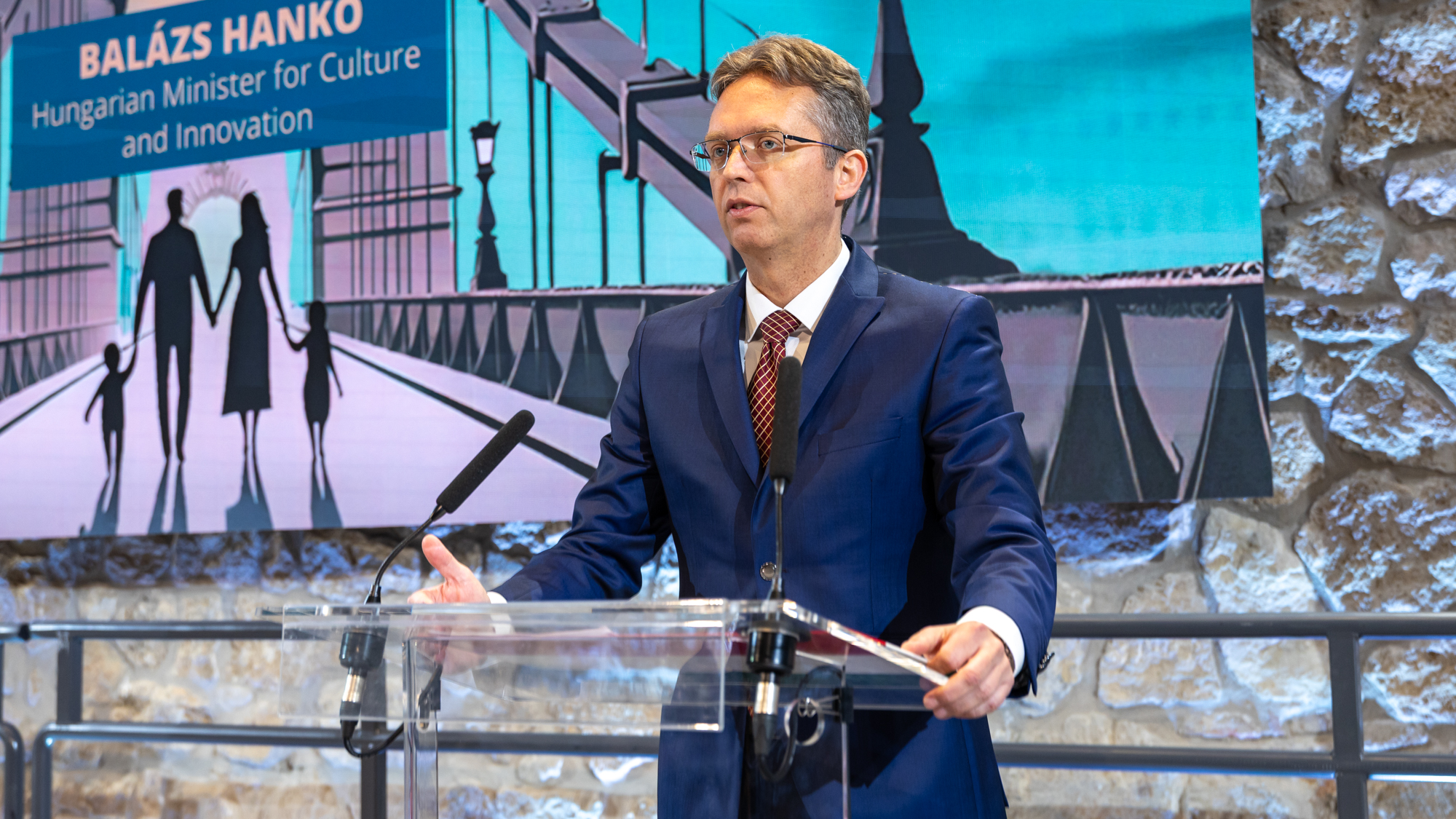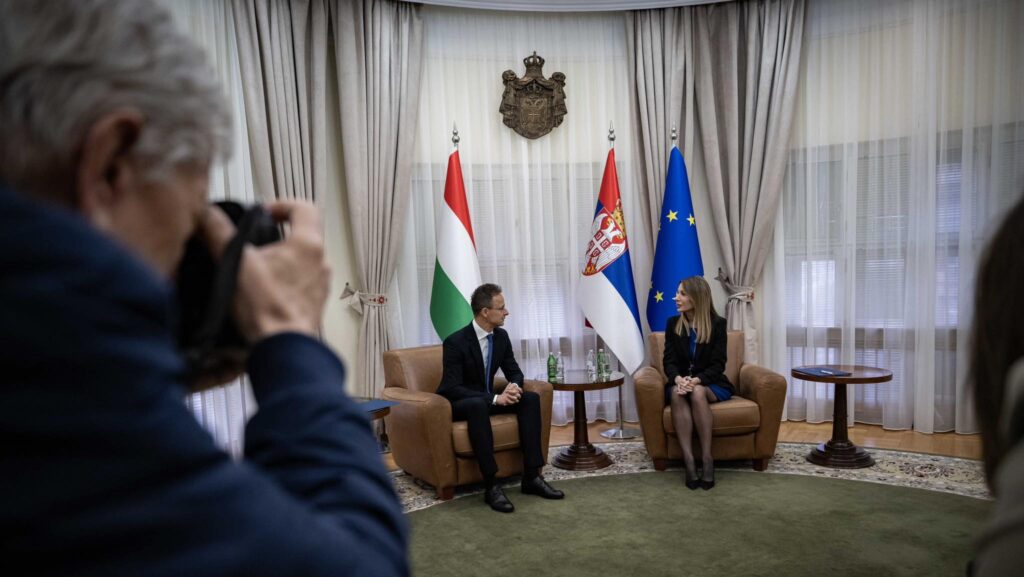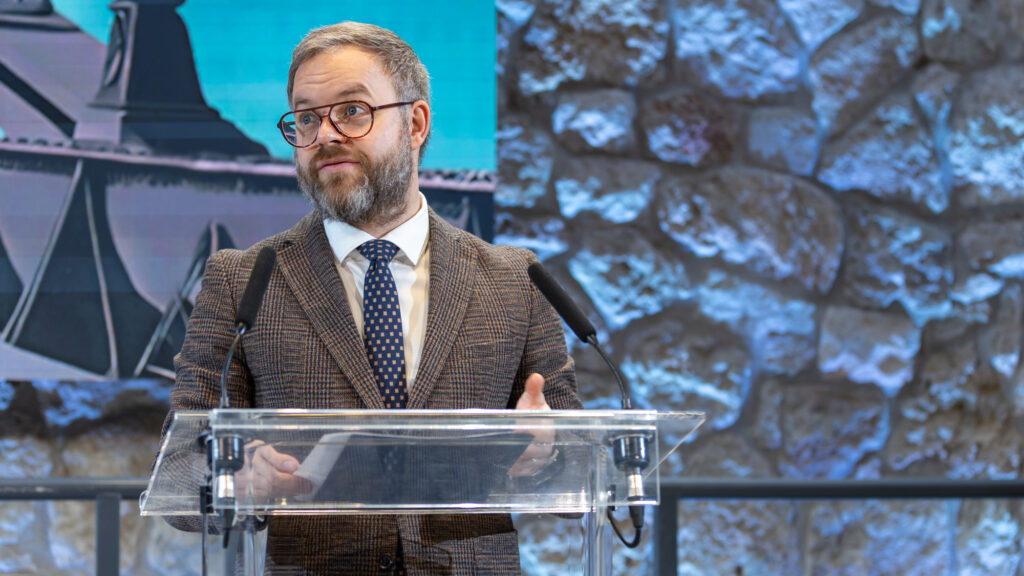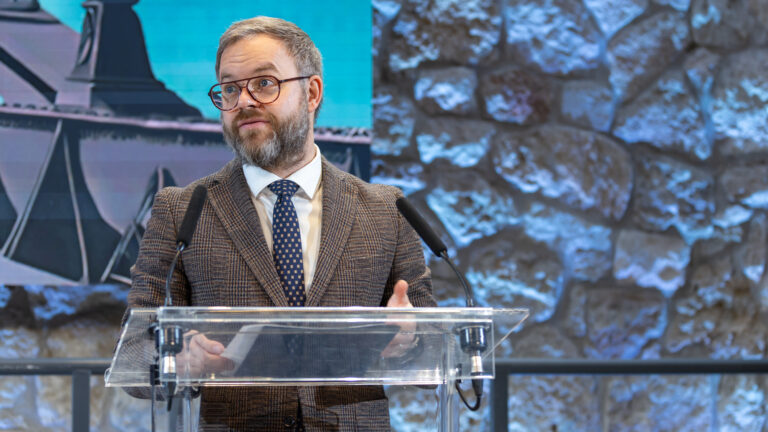The Danube Institute is hosting a two-day event dedicated to the issue of family support and family formation on 1–2 April in the famous Castle District of Budapest, Hungary. The event titled Family Formation and the Future started with a brief address by Executive Director at the Institute István Kiss.
He thanked the distinguished guests gathered and waiting to take the stage; as well as the Mathias Corvinus Collegium’s Youth Research Center for partnering with the Danube Institute for the event. He also outlined the three strategies different countries have implemented to tackle demographic challenges. The Western nations decided to do so by importing migrants from less developed countries en masse; East Asian countries such as Japan and South Korea invested in robotics and let machines take over some jobs with workforce shortages. Meanwhile, Hungary—as well as Poland under the previous administration—decided to go another route, and invest in family support programmes to incentivize childbearing among the populace, Mr Kiss explained.
Author and Budapest Fellow Helen Roy spoke next. She told the audience that one of the aims of the conference is to address metaphysical, existential questions about purpose and happiness as it relates to family formation, not just the technicalities and government policies regarding the issue.
Hungarian Ambassador to the Holy See Eduard Habsburg-Lothringen, a descendant of the historic Habsburg family, has six children of his own, so he was speaking from experience when he talked about the benefits and joys of having a large family. Alas, as he pointed out, this is not the norm in Europe anymore. According to an anecdote he shared, it took him two and a half years of driving around Rome, Italy before he came across a pregnant woman. He contrasted that with the 1954 film La Strada by Federico Fellini, in which the scenes shot in the countryside show villages filled with young children. ‘Italy used to be the country of bambini,’ but that is no longer the case, Ambassador Habsburg-Lothringen lamented.
Having large families is still more common in the United States, according to his experience. He encourages all to follow his example of raising many children, as ‘it is the greatest gift you can give to your spouse,’ as he put it.
Danube Institute on X (formerly Twitter): “🇭🇺 “We must not only support families – we must also lead by example,” said Ambassador @EduardHabsburg at the @InstituteDanube’s #FamilyFormation2025 conference.He emphasized: 👨👩👧👦 ”It’s important that political leaders have families. Just think: how many European prime… pic.twitter.com/VTgYVHWzCQ / X”
🇭🇺 “We must not only support families – we must also lead by example,” said Ambassador @EduardHabsburg at the @InstituteDanube’s #FamilyFormation2025 conference.He emphasized: 👨👩👧👦 ”It’s important that political leaders have families. Just think: how many European prime… pic.twitter.com/VTgYVHWzCQ
Minister for Culture and Innovation Balázs Hankó of Hungary spoke next. He started by stating that ‘2010 was more than just a change of government in Hungary,’ as the new Orbán administrations have shifted from an aid-based to a family-based economic and social system, as he put it. He also stated that to the current Hungarian government, a child planned is just as valuable as a child already born, so they provide financial aid to both; and warned against the push for modern gender ideology and LGBTQ activism coming from Brussels. On the latter issue, he expressed his hope that President Trump’s return to the White House will also mark ‘a return to normalcy’ in the US.
Minister Hankó went on to point out that while the European Union has seen a 15-percentage-point drop in the number of children born in the last 10 years, the same number for Hungary was just a two-point decrease in the same time period. He also highlighted the government’s popular family support policies in place, such as the newly expanded income tax exemption for mothers of at least two children.
Related articles:








